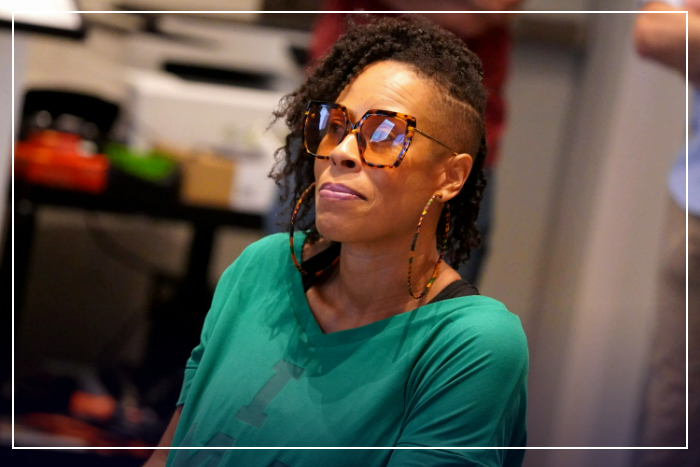The first time happened when I was about 8 years old. My Haitian aunt had to come to the United States for a birthday party. She is proud and dignified. She had a good life in Haiti. She never wanted to learn English or live in any country other than her own.
Yet whenever she flew to the United States, her experience at the border and through customs was hellish: she was a third-class citizen, an unwanted immigrant. That’s what I was taught growing up, to understand how my country viewed my father’s country.
The second time was when I was about 12. My mom drove me from Detroit to Chicago so I could hear some self-proclaimed expert who sold some books about how he helped kids get ready for college. My mom had his book and thought I should listen to it.
At the seminar, I don’t remember how Haiti came up; I just remember him saying, “Nobody wants to go to that hell.” And he laughed along with the audience.
I turned to my mother, angry and confused. Why does he insult us for no reason? What did we do to him? My mother became angry, too, and she looked at me and said, “If you’re angry, explain why.” So I began writing him letters and telling him that he should choose his words more carefully because he would never know which Haitian would sit in his audience.
I put my letter on the floor next to him as he was talking to someone after the seminar. I watched him read a book before driving home for five hours. His face turned a little red. He smiled triumphantly and said to his assistant, “There’s one in the crowd.” Then he threw my letter away. My mother and I threw away his books.
This happened a third and fourth time: My brilliant grandmother was denigrated for her dialect; my father, a math genius, got a perfect score on the SAT math test and was asked to retake it. (His was perfect the second time.) Underestimating and misrepresenting Haitians is nothing new to me. That we are somehow a stain on the fabric of America is an old myth that has shaped my experience as a first-generation Haitian American since I was young. It’s exhausting. Very exhausting. Defending and qualifying our humanity is completely insulting.
This is why I find myself unfazed when recent accusations of prejudice resurface from the mouths of racist politicians. How can we be surprised that we are once again the targets of ridicule and xenophobia? When you are accustomed to this kind of derogatory treatment from a young age, you are less vulnerable to false claims filled with anti-Black and anti-immigrant stereotypes. The message has always been clear that Haitians are unwanted immigrants in the American melting pot. Since then, we have learned not to tie our self-esteem to people’s misconceptions.
But it also comes with danger. Error messages have consequences. Responding to outrageous lies insults our dignity, and ignoring them puts our lives at risk. We are always on the defensive. Anyone can make it what they want, but it is our responsibility to prove it wrong. If we don’t do this, we become more vulnerable to physical attacks and hate crimes. No matter how useful or beneficial we are to the community, we can be defamed at any time and our lives will depend on the accuracy of the narrative.
I don’t feel the need to prove my worth as a Haitian-American playwright and screenwriter, but I realize that many in my family do not have this level of comfort. If someone tells a harmful story about them harmful actions will be taken against them. There is an urgent need for Haitian voices to be heard and for the Haitian experience to be seen, including its diversity. I am currently preparing for the world premiere of my play Bad Creole, inspired by a visit I made with my father to his native country a few years ago. While the play immediately discusses the troubled relationship between two cousins — one born in Haiti, the other American — it also leaves room for a larger conversation about the dangerous relationship between the space of Haiti and the United States. My family has not seen the show, but my father has read all of my work and listened to a few pages before he passed away. It was the first time in my screenwriting career that I was writing about his family’s legacy, and he was proud of it.
Bad Creole is an intensely personal story, but it is now also an important opportunity to gain insight into the humanity of Haiti. I don’t know what problems my play can and cannot solve. I don’t take on the responsibility to change people’s minds and emotions and prove my worth. What I do know is that theater provides opportunities for engagement, and if there was ever a time for the nation to engage with the real and nuanced complexities of Haitian life, now is that time.
Bad Creole Theatre opens October 8 at the Pershing Square Signature Theatre.











